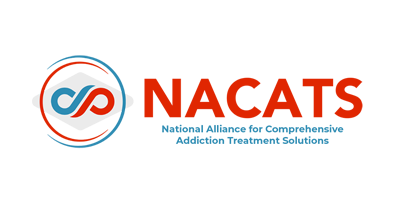
If you think someone is experiencing an opioid, pain pill, heroin, or any other type of overdose, call 911 immediately.
Opioids may have been created for patient care, but somewhere along the way, they became the leader of an epidemic that’s sweeping the states. According to the Tennessee Bureau of Investigation, 70,000 people in Tennessee are currently addicted to opioids. This is causing a lot of problems for Tennessee businesses, families, and communities. People are dying due to overdose, and something needs to change.
One of the ways to enact change is to recognize what an opioid overdose looks like and how we can help. If someone is overdosing on an opioid like Oxycodone (OxyContin®) and it’s caught in time, lives can be saved and families can be mended. At ReVIDA Recovery®, we want our communities to be armed with the knowledge needed to stop this epidemic in its tracks.
Table of Contents
What is Oxycodone?
For those of you who haven’t heard of it, Oxycodone (OxyContin®) is a powerful painkiller known as an opioid. It’s usually prescribed to patients (in pill form) by doctors after surgery or when someone is experiencing incredible pain – pain that can’t be dulled by ibuprofen or other over-the-counter remedies. When taken responsibly and under medical care, Oxycodone (OxyContin®) can provide pain relief and make it easier for the patient to heal. Unfortunately, this opioid isn’t always taken responsibly or in a doctor’s care.
Oxycodone’s (OxyContin®) effects make it a high-risk drug for dependence or substance use disorders. When taken recreationally, Oxycodone (OxyContin®) can make someone feel euphoric, relaxed, or anxiety-free. But because of how “good” it feels, people will often take it in large quantities. When someone has been taking it for a while, they’ll develop a dependence on oxycodone, meaning they’ll need to take more of this drug to experience the same effects. This is partly why we see so many opioid overdoses – people don’t realize they’re taking a toxic dose.
Another common reason for overdose is counterfeit medication – people might think they’re taking Oxycodone (OxyContin®), but in reality, they’re taking something that has been cut or mixed with something like fentanyl. Fentanyl is much stronger than Oxycodone (OxyContin®), so it’s easy to take too much. This is one of the unfortunate consequences of buying opioids illicitly.
What Does Oxycodone Look Like and How is it Ingested?
Oxycodone (OxyContin®) usually comes in a pill form. These tablets come in many colors: pink, yellow, white, gray, brown, red, or green. They’re always round. People take Oxycodone (OxyContin®) orally, or they crush it up so they can mix it with water and inject it directly into their bloodstream. When crushed, the pills turn into a powder. This powder is often snorted when used illicitly. These are the kinds of things you might want to look for if you suspect someone is using opioids recreationally.
What Does an Oxycodone Overdose Look Like?
When too much Oxycodone (OxyContin®) is taken, the body reacts by shutting down. Opioids bind to receptors in the brain, the spinal cord, and the gastrointestinal tract. This leaves a lot of areas of the body susceptible to damage, pain, or malfunction. Once an overdose has begun, the person experiencing it can exhibit symptoms like:
- Tiny pupils
- Nausea or vomiting
- Constipation
- Drowsiness
- Coma
- Seizures
- Low blood pressure
- Weak or thready pulse
- Difficulty breathing
- Shallow breathing
- Slow breathing
- Blue fingernails, lips, or eyelids
What Causes an Oxycodone Overdose?
The most common cause of an Oxycodone (OxyContin®) overdose is taking too much of the drug. As mentioned earlier, recreational use of Oxycodone (OxyContin®) causes people to build up a tolerance; it’s likely that they’ll take more and more over time. A lot of times, they won’t realize how much they’re taking. Any time someone takes opioids recreationally or outside of a physician’s care, they’re vulnerable to an incident of overdose. It’s also possible for patients to forget that they’ve already taken the prescribed dosage, so they’ll accidentally take more. In some cases, this can also cause an overdose.
Because opioids are a depressant, mixing them with other depressants can also cause an overdose. If someone is taking alcohol or other drugs alongside Oxycodone (OxyContin®), their respiratory rate can slow down to dangerous levels. It’s unsafe to take this medication with other medications in the same class.
Are There Long-Term Effects of an Oxycodone Overdose?
When people survive an opioid overdose they may experience oxycodone long-term side effects or health problems. A non-fatal opioid overdose (NFOO) can also occasionally cause long-term mental health issues.
A recent study submitted to RTI International pointed out that during an overdose, the brain loses oxygen (also called hypoxia), which can lead to long-term brain or liver damage. Overdose can also cause long-term hypotension, which can contribute to fainting, fatigue, trouble concentrating, and more. It’s also important to note that any time the brain endures trauma like this, it’s vulnerable to a variety of mental health disorders.
In other words, yes. Overdose can contribute to health problems down the road.
What To Do If You Witness An Overdose
Witnessing an overdose is scary, but time should never be wasted. Get help immediately. If you notice the symptoms of an overdose in someone you know or love, call 911.
NOTE: Under present Tennessee law, a person who seeks medical assistance for a person experiencing or believed to be experiencing a drug overdose will NOT be charged for any drug violations. That means if you’ve been using recreational drugs and you’re worried about getting in trouble, keep in mind that you will not be arrested, charged, or prosecuted for having drugs on your person or in your system. The only thing that matters is getting help.
When you call for help, give the dispatcher as many details as you can about the situation. Details like:
- The dosage of Oxycodone (OxyContin®) taken
- How long the person has been experiencing symptoms
- What the symptoms look like (in detail)
- Whether or not the person is conscious or unconscious
- Other medications the person is taking
- Whether or not the person has had any alcohol or illicit substances in addition to Oxycodone (OxyContin®)
The more detail you can give to the dispatcher or the first responders, the better chance someone has of recovering from an overdose. Your details (and your call for help) have the ability to save someone’s life.
Naloxone (Narcan®) is a medication that counteracts the effects of an opioid overdose, and it works quickly. When the paramedics arrive, they’ll likely administer a dose of naloxone right away. This is another reason why it’s so important to include what type of drug has been ingested.
Oxycodone Treatment (Substance Use Disorder) Options at ReVIDA Recovery®
If you or someone you love has fallen victim to the nationwide opioid epidemic, you’re not alone. Finding yourself caught in the manipulative cycle of a substance use disorder doesn’t mean your life is over. Far from it. People recover and go on to lead happy, healthy lives after oxycodone addiction treatment. We can help you reclaim your life with one of the following treatment options:
Structured Outpatient Treatment
The ReVIDA Outpatient program is a flexible and structured treatment. Our evidence-based scientific treatment includes individual and group therapy, education classes, and 12-step meetings. Also, we help connect you to resources and community partners who have joined together to assist your extended support team during treatment.
Medication-Assisted Treatment (MAT)
Discontinuing opioid use is one of the most difficult challenges you will experience. Choosing a MAT program means choosing support. We’ll work to decrease any withdrawal symptoms and make your recovery as comfortable as possible. Our MAT program is supervised by physicians, licensed therapists, certified counselors, care coordinators, and peer recovery specialists to oversee your progress and health – every step of the way.
Buprenorphine (Suboxone®) Treatment
Our medically supervised Suboxone ® Program helps quiet the mind and prepare your body for the treatment and support for long-term opiate addiction. Buprenorphine (Suboxone®) is one of the most effective and proven therapies to reduce the cravings for opioids. Unlike Methadone, this treatment can be prescribed in a doctor’s office and permits our staff to prepare you for the more important work of one-on-one therapy and strategies for daily recovery.
Counseling and Group Therapy
We believe that providing individual and group therapy are critical components of assisting patients as they navigate the road to long-term recovery. From the moment you begin treatment, you will discover that we offer a safe and supportive place to talk and learn the necessary skills that will support long-term recovery and a healthy lifestyle. Our behavioral healthcare team is composed of licensed therapists, certified counselors, care coordinators, and peer recovery specialists who are ready to guide and support you all along the way.
To learn more about treatment for substance use disorders at ReVIDA Recovery®, call us today at 423-631-0432 so we can help you reclaim your life!
FAQs About Oxycodone Overdose
How much oxycodone does it take for someone to overdose?
The dosage of Oxycodone (OxyContin®) that produces an overdose is different for everyone. Certain factors like age, other medications, weight, and current state of health all influence the likelihood of an overdose.
What do you do if someone overdoses on oxycodone?
Call 911 immediately. The more detail you can give to the dispatcher or the first responders, the better chance someone has of recovering from an overdose. Your details (and your call for help) have the ability to save someone’s life.
NOTE: Under present Tennessee law, a person who seeks medical assistance for a person experiencing or believed to be experiencing a drug overdose will NOT be charged for any drug violations. That means if you’ve been using recreational drugs and you’re worried about getting in trouble, keep in mind that you will not be arrested, charged, or prosecuted for having drugs in your possession or in your system.










